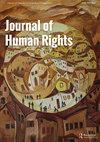The dictator’s dilemma: Why communist regimes oppress their citizens while military regimes torture and kill
IF 1.6
2区 社会学
Q3 INTERNATIONAL RELATIONS
引用次数: 0
Abstract
Abstract What makes some authoritarian regimes more willing to employ extrajudicial violence (torture and killings), as opposed to more conventional forms of repression (restrictions on speech and association)? A voluminous literature addresses the causes and dynamics of state repression. Whereas large-N studies explain repressive activities as proportional responses to the challenges governments face, historical work reveals instances of disproportionate repression. This literature, moreover, is inconclusive regarding the effects of communist and military regimes on violations of physical integrity rights. Another shortcoming of current work is that different types of repression are modeled separately. I distinguish between oppression (restrictions on speech), repression (the use of beatings, arrests, and trials to restrain the rights of assembly and association), and state terrorism (when governments intimidate political opponents using extrajudicial violence). I examine the relationships among them in a multivariate regression framework from 1952 to 2010. My analysis reveals that communist dictatorships repress the freedoms of expression, travel, and association, whereas military dictatorships engage in extrajudicial violence. My study contributes to the literature by providing an institutional account of why tactics of repression differ between these two political systems, and by considering the effects of temporal lags, endogeneity, and diffusion processes on state repression.独裁者的困境:为什么共产主义政权压迫他们的公民,而军事政权折磨和杀戮
摘要是什么让一些独裁政权更愿意使用法外暴力(酷刑和杀戮),而不是更传统的镇压形式(限制言论和结社)?大量文献论述了国家镇压的原因和动态。尽管大N研究将镇压活动解释为对政府面临的挑战的比例反应,但历史研究揭示了过度镇压的例子。此外,关于共产主义和军事政权对侵犯人身完整权的影响,这些文献没有定论。当前工作的另一个缺点是,不同类型的镇压被单独建模。我区分压迫(限制言论)、镇压(使用殴打、逮捕和审判来限制集会和结社的权利)和国家恐怖主义(政府使用法外暴力恐吓政治对手)。我在1952年至2010年的多元回归框架中研究了它们之间的关系。我的分析表明,共产主义独裁政权压制言论、旅行和结社自由,而军事独裁政权则从事法外暴力。我的研究为文献做出了贡献,它从制度上解释了为什么这两种政治制度之间的镇压策略不同,并考虑了时间滞后、内生性和扩散过程对国家镇压的影响。
本文章由计算机程序翻译,如有差异,请以英文原文为准。
求助全文
约1分钟内获得全文
求助全文

 求助内容:
求助内容: 应助结果提醒方式:
应助结果提醒方式:


